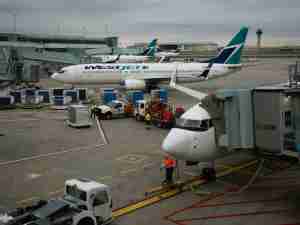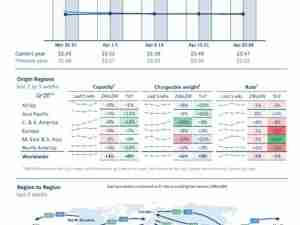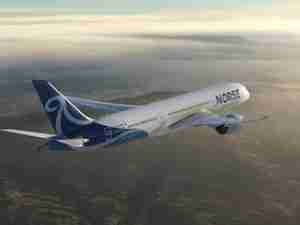By Peter A. Buxbaum, AJOT
A sequel to the Dubai World Ports debacle, this one involving the ownership of US airlines, is shaping up in the US Senate this fall. At issue is a proposed Department of Transportation rule that would loosen strictures on foreigners owning shares in US airlines. Legislation which would have stopped that development passed overwhelmingly in the House of Representatives in mid-June. The Senate is not expected to take up the measure until after Labor Day.
Meanwhile, DOT appears determined to move forward with its rule, a move backed by shippers, carriers, and intermediaries alike. The issue has arisen at the same time that US negotiations with the European Union over an open skies agreement reached a critical juncture.
The proposed DOT rule would redefine the legislative requirement that US airlines be under the "actual control" of US citizens. Current US law requires that two-thirds of directors and officers of US airlines be US citizens and that 75% of voting shares be held by US citizens. The proposed DOT rule would require that only decisions involving participation in the Civil Reserve Air Fleet, which diverts civilian aircraft for military transport when necessary, be under the control of US citizens. Opponents say the changes could compromise US security and cost jobs.
An amendment to a federal transportation spending bill, sponsored by Rep. James L. Oberstar (D-MN), would prohibit the DOT from finalizing or implementing the proposed policy during the 2007 fiscal year. 'This will give the DOT an opportunity to propose, and Congress to consider, whether there should be changes in the law governing foreign control,' said Oberstar, on the floor of the House. 'Any changes in the law must come from Congress, not by administrative fiat.'
Oberstar went on to accuse DOT of trying to change the rule in order to advance an open skies agreement with the European Union, 'an agreement which the State Department and the DOT describe as a major breakthrough,' Oberstar said, 'but which in reality, would provide only limited benefits for US airlines.' The House of Representatives overwhelmingly adopted the Oberstar amendment on June 14.
The Senate is not scheduled to vote on the measure until later in the year. In the meantime, all indications point to the administration proceeding with its proposed rule change. In a farewell speech to the US Chamber of Commerce, former transportation secretary Norman Mineta said that foreign capital is critical for the US to stay competitive in a global economy. "It's pure folly to think that economic isolationism is an option in today's interconnected world," he said.
'Protectionist and isolationist view'
US transportation industry stakeholders support the administration plan. 'This is a manifestation out of the maritime side,' said Peter Gatti, executive vice president of the National Industrial Transportation League, a trade group that represents primarily shippers. 'There is an element in Congress that doesn't want to see foreign ownership of maritime facilities based on the DPW situation. I view it more as reaction to that; that they don't want foreign participation in other areas of transportation as well.' Earlier this year, an uproar in Congress scrapped a deal in which Dubai Ports World would have operated several US port facilities.
Kristin Krause, a FedEx corporate spokesperson, agreed with Gatti's assessment. 'This issue got wrapped up in the Dubai ports debacle,' she said. 'It involves a protectionist and isolationist view of foreign investment and has little to do with airline security.'
Shippers and carriers alike find advantages in increasing foreign participation in US airlines. 'Forwarders need to preserve as many lift sources as possible,' said Brandon Fried, executive director of the Washington-based Airforwarders Association. 'If we need to accomplish that with foreign ownership, that would be fine.'
The situa








